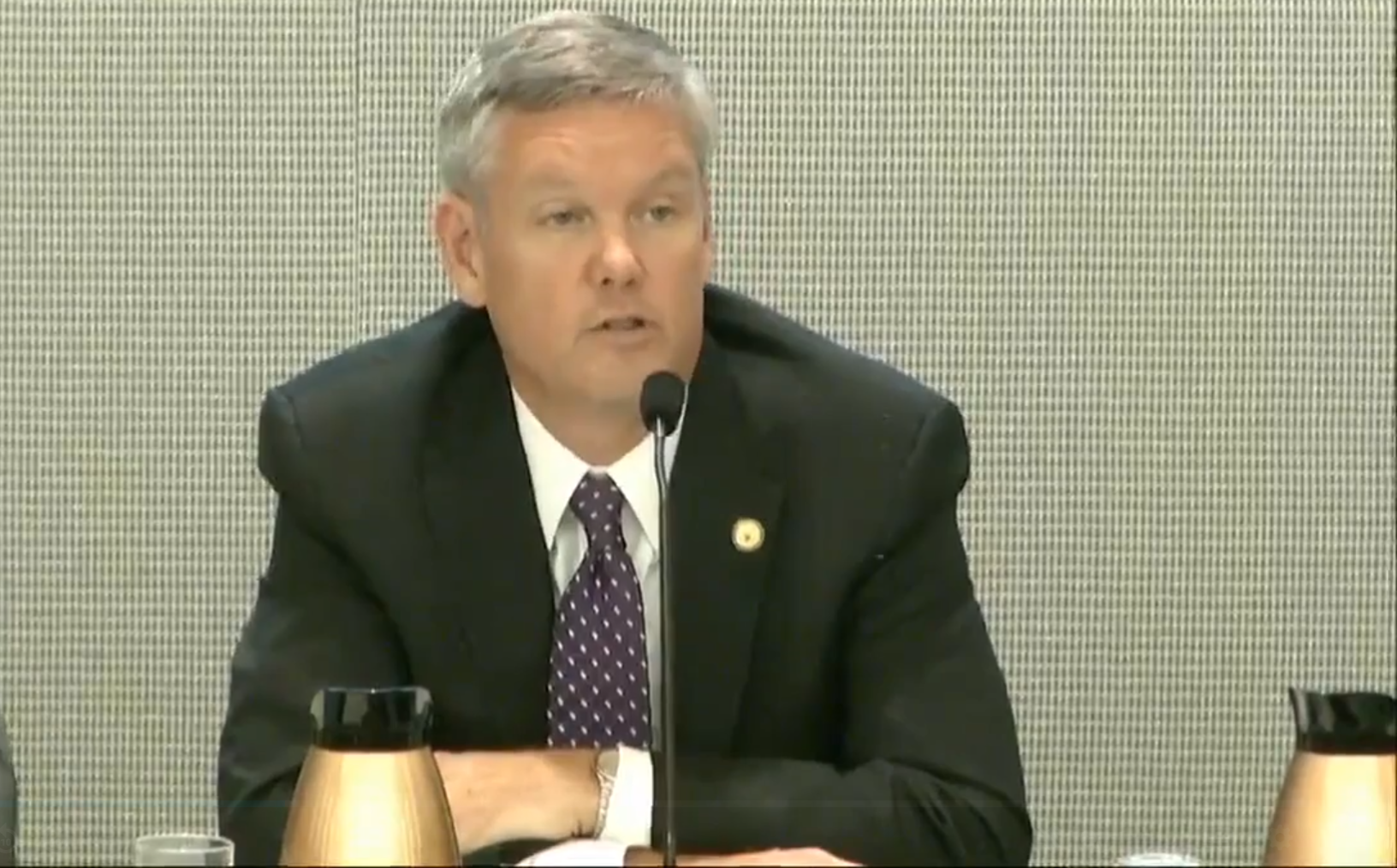
Most Nuclear Regulatory Commission commissioners are open to taking control of the agency’s telework rules, teeing up yet another shift in remote-work policy at an agency that has struggled to settle on one.
The issue is now “a voting matter” for the commissioners, who “agreed that October 31 was the date in order to prompt a timely decision on this,” NRC Chairman Chris Hanson said in a Sept. 12 all-hands meeting, according to an official transcript of the gathering at commission headquarters in Rockville, Md.
For employees paid every two weeks, NRC allows the equivalent of four days of remote work a week, up from three days a week proposed in 2021, when the agency’s attempt to return to the office stumbled out of the gate amid disagreements about how much in-office work was necessary.
A pillar of the current telework policy, developed by NRC staff and authorized by the agency’s career executive director of operations, is that supervisors directly approve telework requests from their subordinates. That and more could change if the commissioners, some of whom come to the office more often than not, swoop in and rewrite the rules.
Hanson, a Democrat who is in his office “four to five days a week,” was the only commissioner last week who said decisions about telework should remain in the ranks of the career civil service.
“The commission’s job is to tell the staff what to do, and it’s the staff’s job to figure out how to do it,” Hanson said.
NRC’s three other commissioners, Democrat Bradley Crowell and Republicans David Wright and Annie Caputo, believe the commissioners themselves should write the policy, according to an official transcript of the all-hands.
[I]t’s important for the commission to be able to weigh in on this proposal to ensure that all perspectives are considered,” said Wright, who added that he would likely vote “way before” Oct. 31.
Hanson and Wright were largely circumspect at the meeting, but Crowell and Caputo, who agreed that the commission should have a firm hand in writing telework policy, offered competing visions of the future of remote work at the NRC.
“I firmly believe that this should be a voting matter for the commission,” Caputo said at the all-hands, adding that she believes the NRC is “struggling with telework.”
Crowell called telework policy a “momentous and important” decision that the commission should make but he also said that telework was “a misnomer.”
“I prefer to just call it work,” said Crowell. “I really don’t care whether you’re getting your work done at a desk here at headquarters, from some other location, while you’re on the road, as a part of your job, visiting sites or licensees.”
Caputo, on the other hand, described “a sense of teamwork and the cross-pollination that comes with simply being in the same office together” and said that too much telework could cause Congress and the industry to second-guess the agency’s ability to “effectively embrace and address such innovative technologies” as advanced nuclear reactors.
The two also disagreed about how far down the NRC hierarchy to delegate decisions about remote work, and how many days to spend in the office.
Crowell said that if employees at home or on the road are not doing their work “your supervisor knows it.” He also believes that it would be “difficult if not impossible to put a magic number on a ratio of in-person versus external work.”
Caputo said that letting supervisors set telework schedules on a case-by-case basis put “a tremendous amount of pressure” on these people and that NRC should not allow too much telework when “other agencies like the Department of Energy are moving toward three days a week in person.”